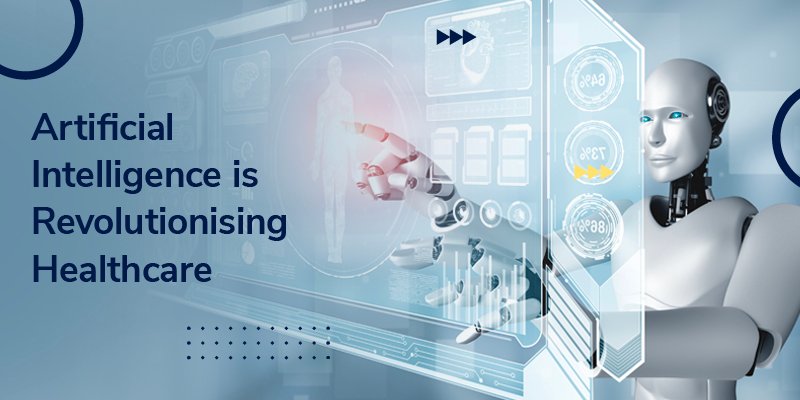Artificial Intelligence (AI) is transforming the healthcare industry, enabling faster diagnoses, personalized treatment plans, and improved patient care. With its ability to analyze vast amounts of data, AI is helping medical professionals make more accurate decisions, ultimately saving lives. In this article, we explore AI-driven innovations in diagnostics, treatment, and patient care.

1. AI in Medical Diagnostics
AI has significantly improved the accuracy and speed of disease detection through advanced data analysis and imaging techniques.
- Early Disease Detection: AI-powered tools analyze medical images (e.g., MRIs, X-rays) to detect conditions such as cancer, cardiovascular diseases, and neurological disorders at early stages.
- Pathology and Lab Testing: AI automates pathology analysis, identifying abnormalities in tissue samples with greater precision than traditional methods.
- Predictive Analytics: AI assesses patient history and genetic information to predict the likelihood of diseases, allowing for preventive care.
2. AI-Driven Treatment Innovations
AI is playing a crucial role in designing effective and personalized treatment plans for patients.
- Personalized Medicine: AI analyzes genetic data to develop customized treatment plans tailored to an individual’s unique genetic makeup.
- Robotic-Assisted Surgery: AI-driven robotic systems enhance precision in surgical procedures, minimizing risks and improving recovery times.
- Drug Discovery and Development: AI accelerates the process of discovering new drugs by analyzing chemical compounds and predicting their effectiveness in treating diseases.
3. AI in Patient Care and Hospital Management
AI is revolutionizing patient care by improving efficiency and accessibility in medical services.
- Virtual Health Assistants: AI-powered chatbots and virtual assistants provide patients with 24/7 support, answering medical queries and offering preliminary diagnoses.
- Remote Patient Monitoring: Wearable devices equipped with AI analyze real-time health data, allowing doctors to monitor patients remotely and intervene when necessary.
- Automated Administrative Tasks: AI streamlines hospital operations by automating appointment scheduling, medical record management, and insurance processing.
4. Ethical and Privacy Considerations
While AI offers numerous benefits, its implementation in healthcare comes with ethical challenges and privacy concerns.
- Data Security and Privacy: AI systems require access to sensitive patient data, necessitating strict security measures to protect against breaches.
- Bias and Fairness: AI algorithms must be trained on diverse datasets to ensure unbiased decision-making and equitable healthcare access.
- Regulatory Compliance: Governments and healthcare organizations must establish clear regulations to ensure AI applications meet ethical and legal standards.
5. The Future of AI in Healthcare
As AI technology continues to evolve, its impact on healthcare will only grow.
- AI-Powered Preventive Healthcare: AI will enable proactive healthcare by predicting potential health risks and recommending lifestyle changes to prevent illnesses.
- Improved Mental Health Support: AI-driven mental health apps will provide personalized therapy and emotional support through natural language processing.
- Integration with IoT and Wearables: AI will work alongside Internet of Things (IoT) devices, offering real-time health monitoring and automated alerts for medical emergencies.
Conclusion
AI is revolutionizing healthcare by enhancing diagnostics, treatment, and patient care. As technology continues to advance, AI-driven solutions will play an increasingly vital role in improving medical outcomes and making healthcare more accessible. However, addressing ethical concerns and ensuring data privacy will be essential to fully harness AI’s potential in the healthcare industry.